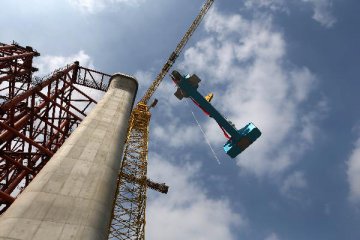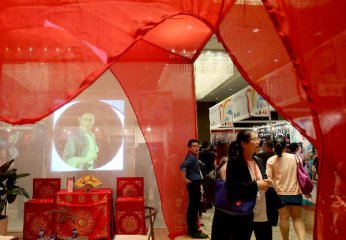
Premier Li Keqiang said Saturday that the country had successfully fulfilled all the main tasks and targets set out in the economic and social development roadmap for 2011-2015, setting an optimistic tone for the implementation of the next five-year plan.
Li was speaking at the opening of the annual session of the National People's Congress (NPC), China's top legislature, while delivering a government work report to some 3,000 lawmakers from across the country.
The country, he said, had seen impressive achievements in its development in the 12th Five-Year Plan period, defying a "complicated international environment" and "challenging tasks of carrying out reform and development and maintaining stability at home."
In particular, the country sustained a high economic growth rate in the five years and secured milestone progress in structural adjustments. China's GDP grew at an average annual rate of 7.8 percent between 2011 and 2015.
This enviable rate made China the world's second-largest economy, and the largest trading nation in terms of goods as well as a major outbound investor, Li said. Meanwhile, services grew to be the largest economic sector in the country, while consumption became a major driver of growth, the premier noted. Energy consumption per unit of GDP dropped by 18.2 percent, and the emissions of major pollutants were cut by over 12 percent. Li then pointed to across-the-board infrastructure improvements and major scientific and technological innovations.
Achievements were made in popular undertakings such as manned space flight, the lunar exploration program, and deep-water explorations, as well as lesser known research on quantum communications, neutrino oscillation, and iron-based high-temperature superconductivity.
He went on to commend improved living standards and notable social developments, which saw the urban-rural income gap narrowed and basic health insurance expanded to achieve complete coverage. More than 100 million rural residents were lifted out of poverty, and over 300 million rural residents gained access to safe drinking water, Li said.
"China's soft power continued to grow. The rule of law was advanced in all respects. Significant achievements were made in the military revolution with Chinese characteristics," the premier said. Li said China's success "demonstrate the strength of socialism with Chinese characteristics and the creativity of the Chinese people."
The people can derive great confidence and a strengthened sense of unity from these achievements, drawing on them to forge ahead on this new leg of the journey toward realizing the Two Centenary Goals, he said. The premier's optimism comes as China faces rising headwinds with uncertainty clouding the global recovery.
China's economy expanded 6.9 percent year on year in 2015, the slowest in a quarter of a century, weighed down by a property market downturn, falling trade and weak factory activity. The government put this year's growth target between 6.5 and 7 percent, down from last year's "approximately 7 percent."
A draft outline for the 13th Five-Year Plan period (2016-2020) unveiled Saturday, meanwhile, put the average annual economic growth target of that five-year span at above 6.5 percent. Still, the premier's words have boosted considerable confidence, something the government has been trying to instill.
Bijie Mayor Chen Changxu said he was thrilled by poverty reduction achievements between 2011 and 2015. Bijie is an extremely poor city in Guizhou Province selected as a trial zone for poverty alleviation measures by the State Council in 1988. Until this day, more than 1.25 million in the city live under the poverty line.
"Bijie lifted 1.9 million people out of poverty during the 12th Five-Year Plan period [...] I am sure we could win a greater victory in the battle against poverty in the next five years," said Chen who is also a deputy to the NPC.
His words were echoed by fellow lawmaker Bao Hongyi, a primary school teacher from Cangyuan Wa Autonomous County in the southwestern province of Yunnan. Bao said she was impressed by Yunnan's economic development from 2011 to 2015.
"I look around, and I see new school buildings, and new teaching equipment. Students now get free breakfast and teachers in rural areas get better paid," she said. "It's like there are new changes every day."
"I understand that our country is facing some economic challenges, but I am sure that we can eventually overcome them and all of the tasks and targets set out in the 13th Five-Year Plan will be accomplished," Bao said.




















Latest comments